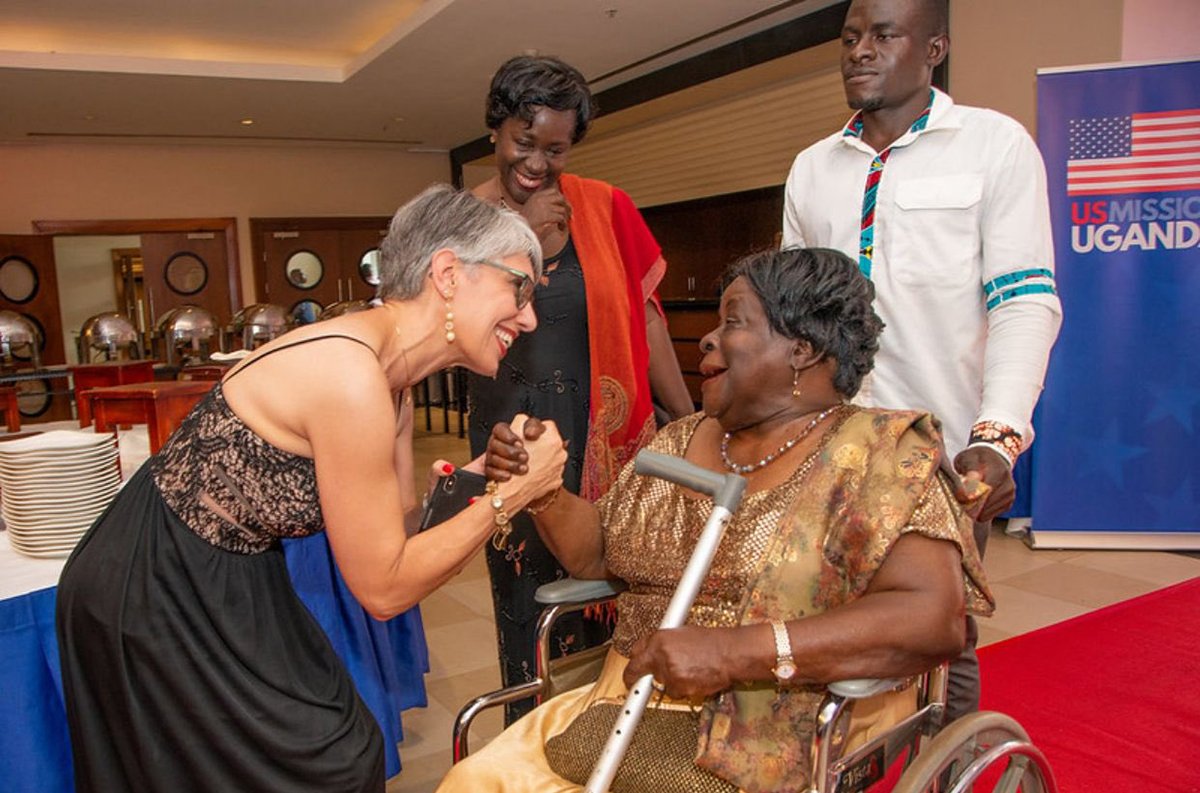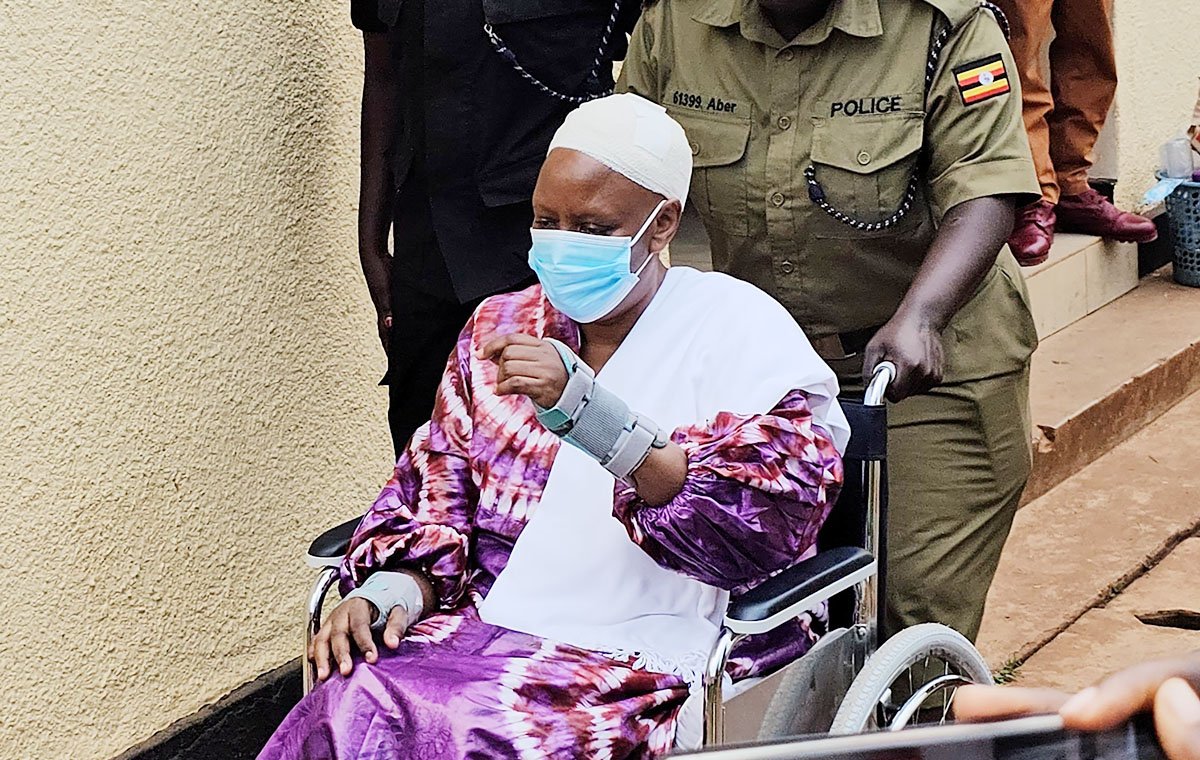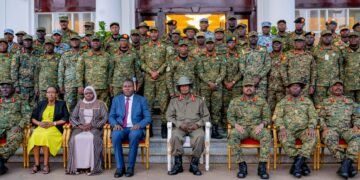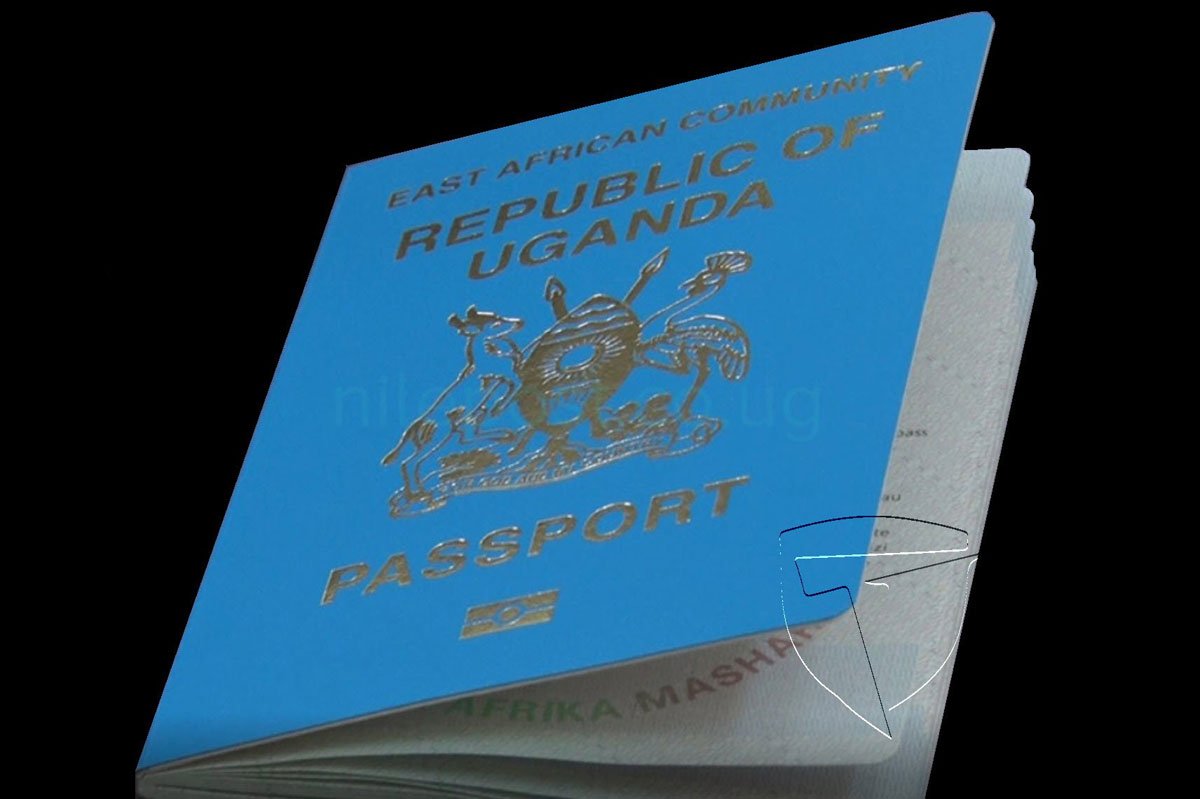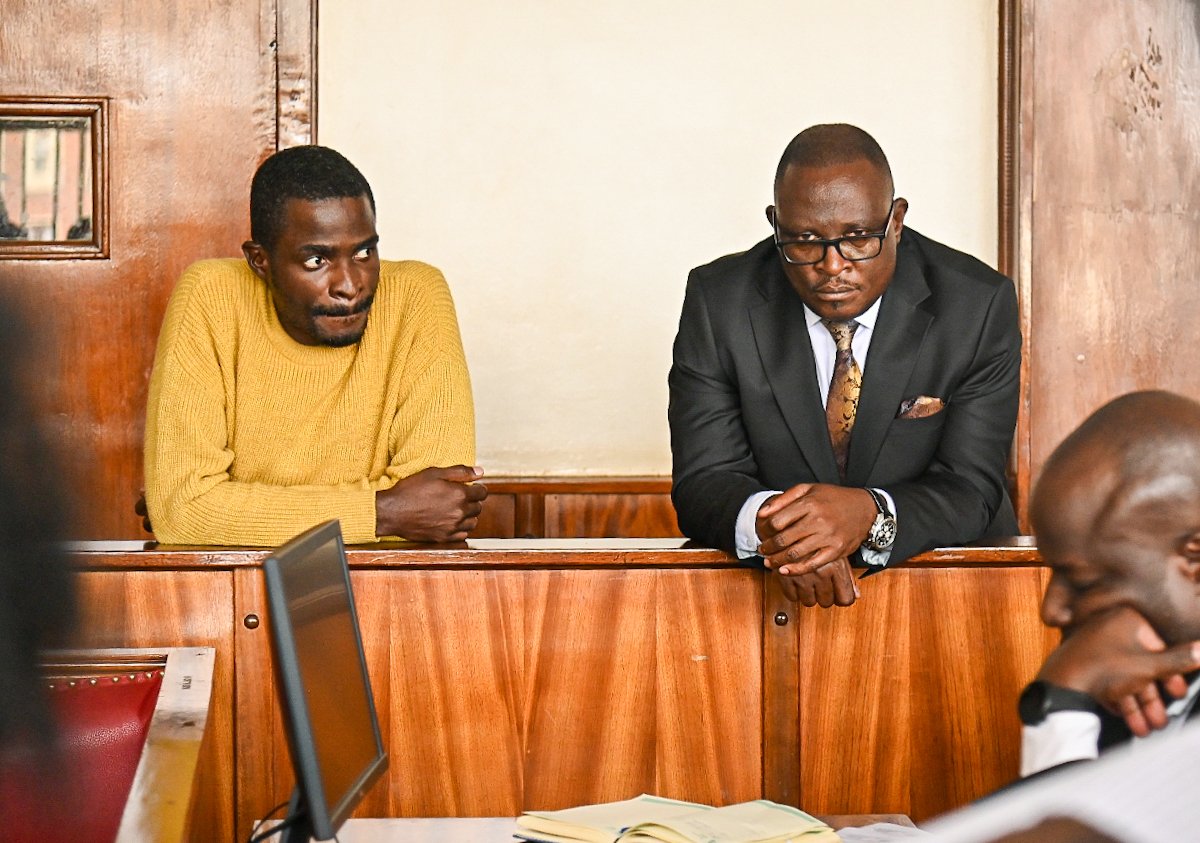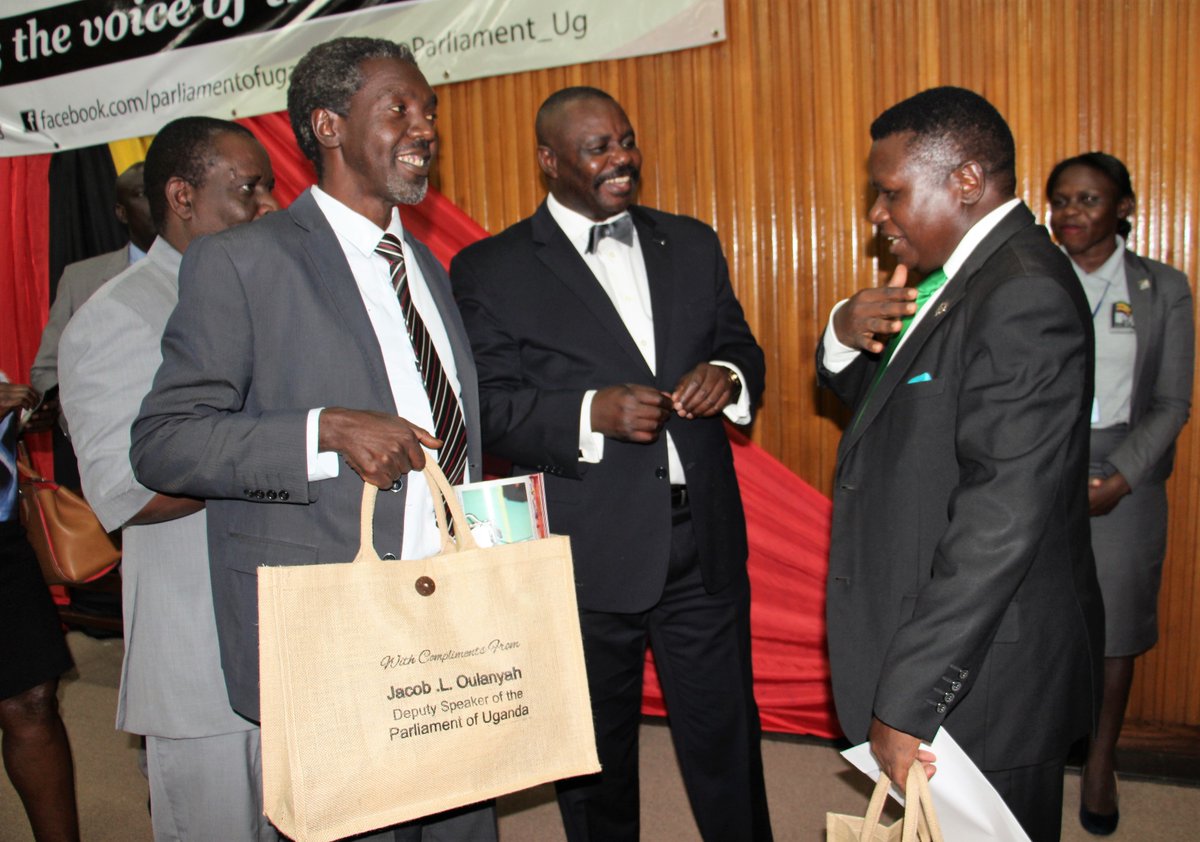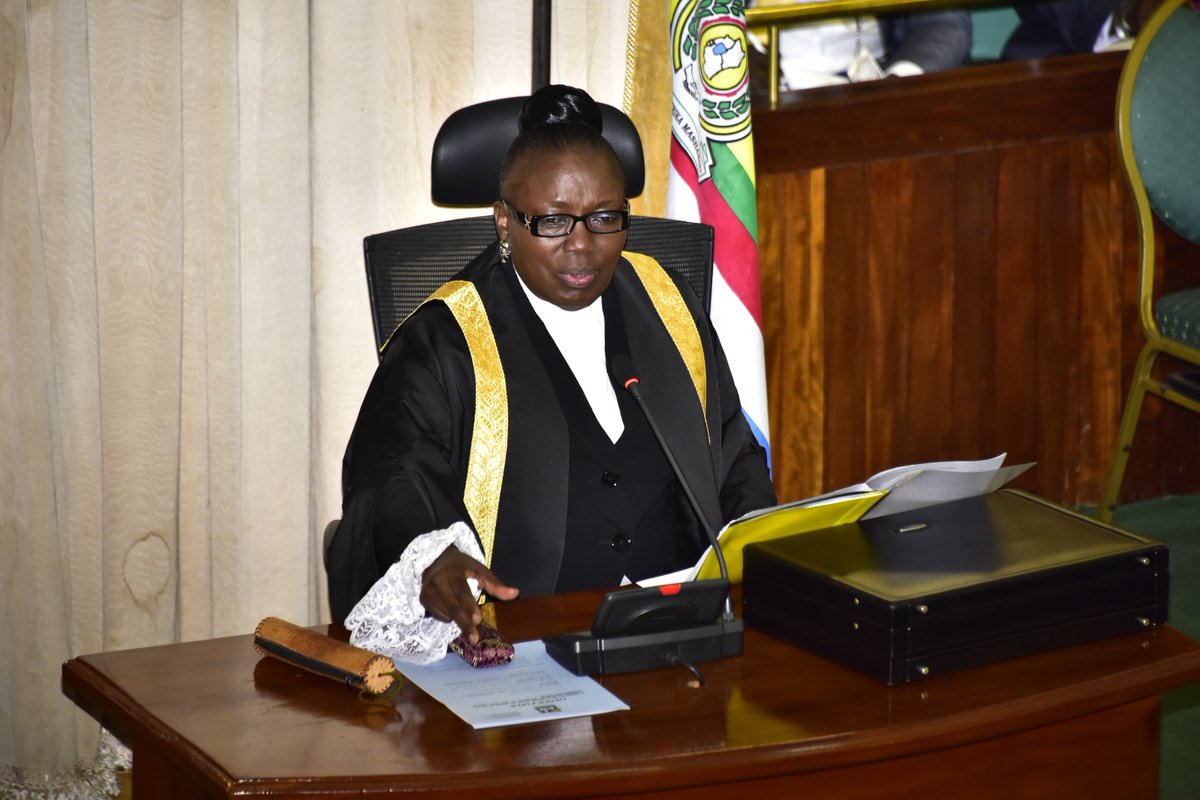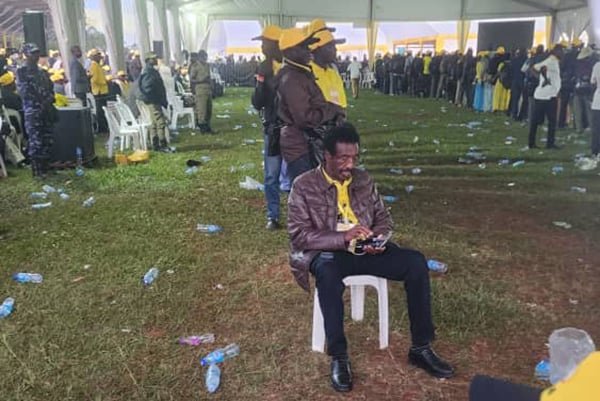Joyce Mpanga, an educationist, women rights activist, and veteran politician among the few women who served in the Legislative Council (LEGCO), passed away over the weekend.
Her son, Fredrick Joshua Mpanga, said the cause of death is suspected to have been a cardiac arrest. She was about to celebrate her 91st birthday.
She was the mother of lawyer and author David Mpanga, Peter Mpanga, a former private secretary to the Kabaka, George Mpanga, a poet and podcaster living in the United Kingdom, and Lydia Mpanga Sebuyira, an assistant professor at the University of Washington.
Messages of condolences continue to flow as those who knew her praise her contribution to the country’s women’s emancipation as the first minister of women in development under President Museveni’s government.
A message from the US Mission in Uganda said that it is saddened by the passing of Hon. Joyce Mpanga, a Fulbright Program alumna of Indiana University (1962).
“Her participation as the first Ugandan woman in the program opened the opportunity for many other women. Our thoughts are with her family and friends. May her soul rest in eternal peace.”Joyce Mpanga was the third girl in East Africa to get a university degree and the first Ugandan woman to win a US Fulbright scholarship.
Many credit her for the affirmative action intervention in admitting female students at Makerere University and later public universities.
She was a member of the National Council of Women, which, among others, lobbied the Odoki Commission about women’s representation in Parliament and lower councils.
“I helped the women of Uganda put their thoughts before the Odoki constitutional commission and helped to make the Ugandan constitution gender sensitive. For the first time, the women were recognized. It’s he or she. You don’t cover me under men,” Mpanga once told URN.
URN asked her four years ago about what she wanted to be remembered for. Her answers resonated with many of the condolence messages.
Joyce Rovincer Masembe was born on January 22, 1933, in present-day Kasanda, which was then part of the Mubende district.
She studied at Ndejje High School. The school was later demoted to Nalinya Lwantale Primary School. She then joined Gayaza High School in 1946. She was a head girl at Gayaza High for two years.
Here is an archived voice of Mpanga sharing her childhood.
She went to Makerere University in the mid-fifties and taught at Makerere College School. She also served as a member of the Legislative Council in the 1960s. The other women in LEGICO were Sarah Ntiru and Francis Akello. She also lectured at Makerere University before fleeing to exile in 1967.
Joyce Mpanga, the Buganda Loyalist Her son, Peter Mpanga, told journalists on Saturday evening that his mother was particularly interested in passing on good manners to people and her family in particular.
“She made sure that we are good citizens, as welcoming to other people as possible as she was,” he said. Whoever has crossed paths with Joyce Mpanga will testify that she is loyal to the Kingdom of Buganda. At least her son, Peter Mpanga, bears testimony to that. “We belong to an entity of Buganda, and our two parents so loved the king. And our mother instilled that love,” he said.
David Mpanga has served the current Kabaka in different capacities, including Attorney General and Minister of Local Government in the Buganda Government. He currently serves as minister for special assignments at the Mengo-based institution.
Joyce Mpanga raised her children as a single mother. If there is one thing that David Mpanga remembers about her, it is the fact that she was a disciplinarian.
“In Luganda, there are two words for the female gender. Omukyala and Omukazi If you wanted trouble in our household, call a woman omukazi,” said David Mpanga.
She was the wife of Andrew Fredrick Mpanga, who, by the time of their marriage in 1965, was the Attorney General of Buganda under Kabaka Mutesa II. Andrew Fredrick Mpanga had also served Buganda as the Solicitor General. Edward Mutesa II and Dr. Apolo Milton Obote attended their wedding.
The Leader of Opposition, Mathias Mpuuga, said Joyce Rovincer Mpanga diligently served the Kabaka at a very difficult time in the 60’s and after the restoration of the kingdom in the 90’s.
The Buganda Kingdom said Joyce Mpanga was still serving in Buganda’s Parliament (Lukiiko) by the time of her demise. It added that Joyce Mpanga fought for the restoration of the Buganda Kingdom and also looked after Prince Ronald Mutebi before he was crowned Kabaka of Buganda.
No wonder Nabagereka Sylvia Nagginda Luswatta, the wife of Ronald Muwenda Mutebi II, has been closely associated with her.
Sylvia Nagginda Luswatta was one of the high-profile guests when Joyce Mpanga launched her book titled “It’s a Pity She’s Not a Boy.”
The book tells the life story of Joyce Mpanga, a fighter for women’s rights. The first Minister of Women’s Affairs in Uganda was forwarded by Sylvia Nagginda Luswatta.
Joyce Mpanga, “Madam Firsts”
In mourning, Joyce Mpanga of Makerere University sent out a condolence message through X, formerly Twitter. The message was spot-on in its description of Joyce Mpanga.
“We are deeply saddened by the passing of our very own, one of Makerere University’s matriarchs.” It went on to say that “she was a woman of many firsts, including being the first female lecturer in the faculty of education at Makerere University and Gayaza High School’s first African deputy headmistress.”
She was admitted to Makerere University as Joyce Rovincer Masembe in 1953. At the time, Margaret Brain was the warden of the girls who were residing in the present-day Makerere guest house.
Joyce Rovincer Masembe (Mpanga) was among the 13 girls at the time. The warden’s house was the wooden house at the guest house.
Last year, she revealed that this is how the hose was nicknamed “the box.” Her last appearance at Makerere was during the Sarah Ntiru Memorial Lecture last year.
“When we moved into the new Mar Stewart Hall, The 13 of us would only fill the first floor. By the time I left Makerere, we were 50 girls,” she narrated while seated in a wheelchair. In the audience was her contemporary, Rhoda Kalema, another woman activist and former lawmaker.
“Our warden, Margret Brian, often gathered us in the evenings and told us about her struggle with Mary Stewart to persuade the protectorate government to admit girls to Makerere College.
We were always motivated by these talks, which helped us appreciate the ladies’ selfless acts,” shared Mpanga.
“And she warned us that if you go wrong, you will be blocking the room or going wayward for many other girls.” Joyce Mpanga did her education so well that by the time she was leaving Makerere, she had been offered a job as a part-time lecturer in the Faculty of Education.
She was lucky to be awarded a Fulbright scholarship to study for a master’s degree in the United States of America.
After Makerere University, she was nominated to join three other women in the Legislative Council in 1958. She shared that from that time on, a political bug bit her to the extent that she became more interested in politics. Joyce Mpanga’s Life in Exile
Joyce Mpanga fled the country to exile in 1967 through Nairobi to join her husband, Andrew Fredrick Mpanga. Andrew Fredrick Mpanga was in London when the Obote government stormed Sr. Edward Mutesa’s palace, or Lubiri, in February 1966.
The Obote government had suspected her of hosting pro-Mutesa groups at her home in Lungujja. She had been summoned to CID, but she decided to abscond and fled Uganda through Nairobi, Kenya.
Andrew Fredrick Mpanga had played a pivotal role in processing immigration papers for Sr. Edward Mutesa, who had escaped from Uganda to Burundi to travel to the United Kingdom.
Joyce Mpanga had narrated to URN that life in exile was initially not easy and that she had to babysit for a house owner in London as part of a rent arrangement.
She returned to Uganda shortly after Iddi Amin took power. She took up an appointment as assistant secretary to the examination council from 1972 to 1978.
She lost her husband during Iddi Amin’s regime. It should be noted that the husband was not murdered by the regime at the time.
Professor Yusuf Kironde Lule became president; he nominated Joyce Mpanga for a job as Uganda’s ambassador to Germany, but she declined the offer.
In one of the interviews with URN at her flowery compound in Lungujja, Joyce Mpang explained that she was not willing to get out of the country after many years in exile. Lule then appointed her as the deputy chairperson of the Public Service Commission.
She was appointed by President Museveni to serve as Minister for Women in Development in 1988 and later Minister of State for Primary Education, which served from 1989–1991. She was succeeded by David Pulkol. She served as MP for Mubende.
Loved Flowers
Joyce Mpanga loved flowers that could be noticed by whoever was turning up at her marital home following the news about her death. Joyce Mpanga’s spirit could be angered if one turned up with wreaths made from plastic.


